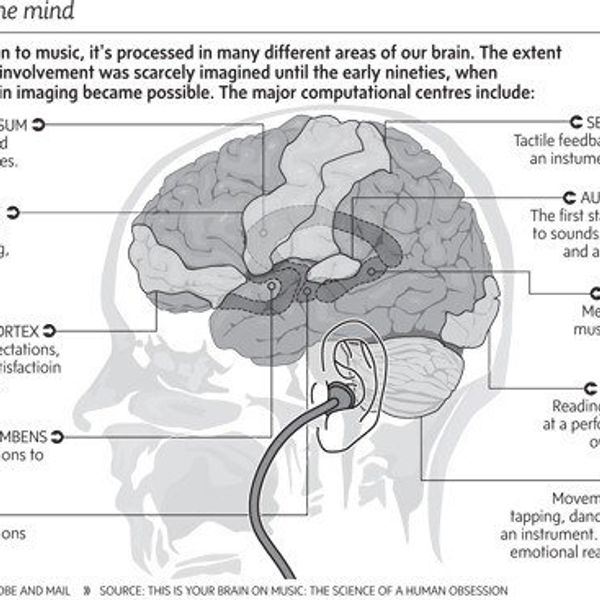Recently, I have taken a huge interest in children with special needs. When I say this, I mean all students with special needs in several different variations. I never took much interest in actually teaching these students, but I always knew that I have could definitely work with these students based on my personality. Until recently, anyway. As most know, I am a music education major. I know that this is my passion and calling in life, but I did begin to wonder where special education came into the picture in my music classroom. I talked to another music teacher recently, and she said that she has several students with IEPs, but she does not teach students with severe disabilities. I began to wonder why because I know how beneficial music is to everyone. In my personal opinion, I think that music should be in the every day curriculum in special education classes. I think that I, as a music educator, should be able to teach every child with special needs, and I have some good reasons why this should be true.
1. Music Engages Several Senses
In some cases, there are special needs students who need improvement on different senses, or they are lacking one sense, like vision, and need to strengthen the other senses. When you engage in playing or singing music, there are several different senses within this task than we realize! In both playing and singing music, there is tactile, kinesthetic, auditory, and visual sense involved all at once! This alone appeals to their sensory needs. When playing an instrument, tactile is used when they feel the instrument, kinesthetic is used when they have to move their hands and/or fingers to create sound, auditory is used when they hear what they create, and visual is used when they track their motion, and the music on the paper if they are reading music.
2. Music Uses Both Hemispheres of the Brain
You mean, you can be left-brained and still be good at music? Yes, yes you can! Music is definitely processed in the right side of the brain, but there is so much more than we realize! It turns out that creating music triggers the sensory cortex, auditory cortex, hippocampus, visual cortex, cerebellum, amygdala, prefrontal cortex, and motor cortex all at once! With all this going on, why is there even a debate on how important music is to ALL students?? (Find this info on http://www.friendshipcircle.org/blog/2014/01/13/5-...)
3. Music Makes You Smarter
I personally thought that there was no way to "sugarcoat" this in any way. This definitely goes along with my last point. Music can definitely make you smarter. Music can and has promoted student achievement. Since creating music does use many different regions of the brain at the same time, it can help students connect to material that may otherwise seem the opposite of music. I fully believe that this can be beneficial to some students with certain learning disabilities. It can foster a new approach to learning material as well as provide appropriate accommodations.
4. Music is Non-Verbal
We all know that famous quote saying "Where words fail, music speaks." Before I even explain anything, we can already determine that this alone would be important for a special education classroom. There are several instances where words to fail these students. Communication is a common problem among different types of special needs students. I know it must be frustrating when students have trouble communicating and you have nothing but language going on around you. Music can be beneficial in this situation in several different ways. For one thing, music is a form of expression. Students who cannot normally express themselves can do so with music. In my music courses, I always hear from my professors that music alone is its own language, and this is beyond true. Students can express with music that they cannot do with words. In addition, it can sometimes help students with their language. When someone sings, you get to understand the language you are singing in. You learn to understand and learn how to pronounce the text in your music. I fully believe that singing can actually help language and speech development.
5. Music is Healing
Have you ever heard of something called Music Therapy? It is an interesting concept and a rewarding thing to get into. Music has been proven to be healing. Sounds crazy, right? Well that is how amazing music is! It has been proven that music can literally heal the body. Well, wouldn't one think that music would be good for students with different severe disabilities? I remember when I was in high school, they brought a child with severe autism into my chorus class. Soon, we noticed that he was beginning to become agitated. I will never forget that we began singing one of our songs to him, and he immediately began to calm down. It was amazing to see the change that occurred once we began singing. Not only can music help these students with their cognitive skills, but it can also help them heal.
6. Music is Powerful
Everything I have mentioned has proven how powerful music is. There is nothing else that can benefit someone in so many ways at one time. I never never heard of another topic or subject stimulating several senses, using many regions of the brain at once, connecting with other topics, and healing the body all at the same time! I think we are giving our students the best education and best experience if they experience music every single day. I believe that special education desperately needs music in their everyday curriculum, and I believe that one day others will realize this as well.





















